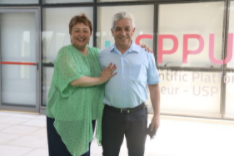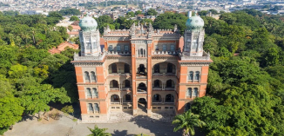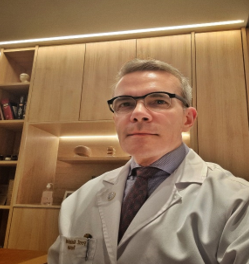 Brasil
Brasil
For an overview of GVN Centers of Excellence, click here.
Scientific Platform Pasteur-USP
Av. Prof. Lucio Martins Rodrigues, 370, Bloco A, 3° e 4° andares – Butantã, São Paulo – Brasil – CEP: 05508-020
The Scientific Platform Pasteur USP The Scientific Platform Pasteur-USP (SPPU) carries out studies focused on emerging and neglected infectious diseases that are transmitted by pathogens that cause complex immune responses, produce nervous system disorders, and impact human and animal public health. The SPPU works as an Emergency Cell and its main objective is to curb epidemics of those diseases by developing preventive, diagnostic/prognostic, and therapeutic methods. Located at the University of São Paulo, in São Paulo State (Brazil), in a 1,700 m² area, the Platform consists of 17 laboratories, four of which are biosecurity level 3 (NB3) – comparable to the European standard. The researchers involved with the SPPU share their areas of expertise, infrastructure, and cutting-edge equipment. This approach purposes to strengthen the development of joint initiatives with a view to discovering new products and processes, as well as to transferring and applying those innovations. The SPPU is the result of a three-partite agreement celebrated among Institute Pasteur (Paris), the University of São Paulo (USP), and the Oswaldo Cruz Foundation (Fiocruz). It is currently a part of the Pasteur Network.

Center Co-Directors: Luís Carlos S. Ferreira & Paola Minoprio
Member Researchers:
Edison L. Durigon, Luis Carlos S. Ferreira, Helder Nakaya, Jean Pierre S. Peron, Patricia BeltrãoBraga

LapClin-Neuro
National Institute of Infectious Diseases
FIOCRUZ – Brazilian Ministry of Health
Avenida Brasil, 4365, Rio de Janeiro, RJ
22640-361, Brazil
The Oswaldo Cruz Foundation (Fiocruz) is the most prominent Institution of Science and Technology in Health in Latin America, based in Brazil. It is directly subordinate to the Brazilian Ministry of Health. Its mission is to produce, disseminate and share knowledge and technologies. Fiocruz was created in 1900. Initially, the objective was to make serums and vaccines against the Plague. After the designation of Dr. Oswaldo Cruz as director in 1902, the institution expanded its activities and became involved in research and experimental medicine. In response to requests from the Brazilian government, the Institute laid the foundations for establishing the National Department of Public Health in 1920. Fiocruz underwent profound changes in the 1980s.
In October 1987, scientists from the institution isolated HIV for the first time in Latin America. The Centennial Foundation took its first steps into the 21st century in a solid way. Significant scientific progress also marked the period: the institution’s researchers decoded the genome of BCG, a bacterium used in Brazil to vaccinate against tuberculosis. The work initiated by Oswaldo Cruz in Rio continued to expand by opening new units in other Brazilian states and Mozambique, Africa. Today the institution has a broad range of responsibilities related to the health and well-being of the Brazilian population, functioning as a National Institute of Health for the Brazilian government. These responsibilities include hospitals (inpatient and outpatient care), health-related research, development of vaccines, drugs, reagents, and diagnostic kits research, development and production, training of public health and health workers, and providing information and communications related to health, science, and technology—the Fiocruz workforce members number over 7,500. Fiocruz includes several fixed facilities in Rio de Janeiro and other locations; however, it contributes to improving health throughout the country through its support of the Brazilian Unified Health System, its proposals on public health policy-making, its research activities, its scientific expeditions, and the reach of its health services and products. Fiocruz is one of the founding members of the International Association of National Public Health Institutes, a membership organization of National Public Health Institutes. The foundation has a longstanding collaboration with GISAID, analyzing and curating COVID-19 virus data in the Americas, then quickly contributing those genetic sequences to the repository. The National Institute of Infectious Diseases (INI) is the main branch of Fiocruz focused on clinical research, teaching, reference services, and assistance in infectious diseases and serves as a reference center for most infectious diseases in Brazil. INI integrates Fiocruz’s Clinical Research Network.

Center Director: Dr. Abelardo Araujo
Research Affiliates: Marcus Tulius Teixeira da Silva, Marco Antonio Lima, Ana Claudia Leite, Beatriz Vaz

